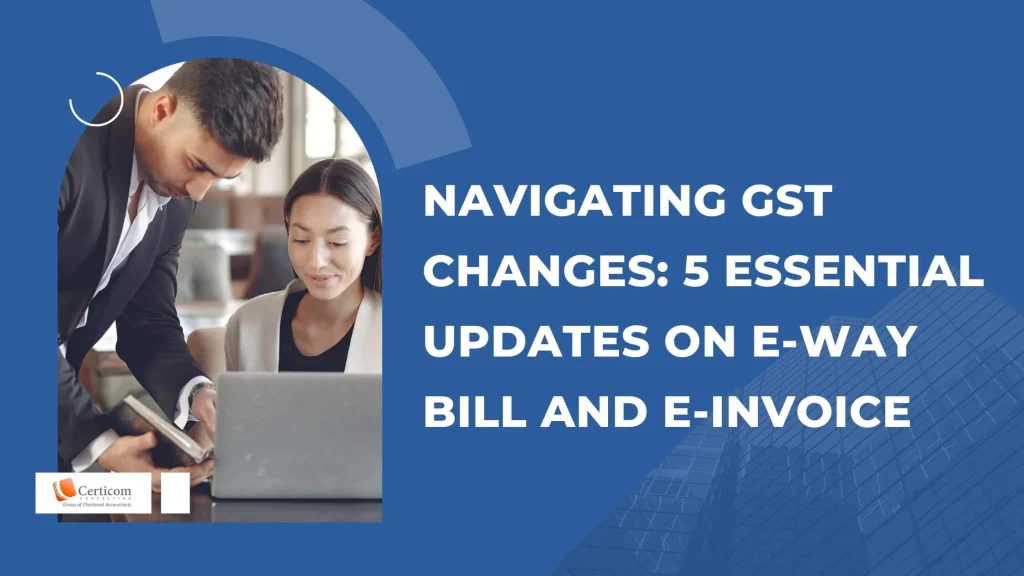Tax Implications and Compliance for OIDAR Services in GST

In the context of GST, OIDAR stands for Online Information Data Base Access and Retrieval Services; these services have distinct tax implications than other kinds of transactions. It only applies to the provision of services, and the primary distinction is that while the beneficiary is located in India, the service provider is not. These services, as their name implies, are supplied by the provider of services via the internet, and the recipient downloads them in India.
India has decided to end the GST exemption for foreign OIDAR service providers effective October 1, 2023. Due to this modification, businesses providing services to the government and individuals will have to pay an integrated GST of up to 18%, including Facebook, Google, and other edtech platforms. Foreign enterprises that provided OIDAR services to the Indian government, state agencies, or people for non-business purposes were previously exempt from this requirement. This modification, however, requires that all OIDAR services be taxable, regardless of how they are used.
What are OIDAR services?
OIDAR is defined as services whose delivery is mediated by information technology through the internet or an electronic network and whose nature renders their provision fundamentally automated needing minimal human participation (Section 2(17) of the Integrated Goods and Services (IGST) Act, 2017).
These comprise digital services including online advertising, cloud computing, online digital content distribution, etc. “Minimum human intervention” was once part of the OIDAR definition.
The Finance Act 2023, on the other hand, changed the definition and broadened the taxation scope for OIDAR services, removing the necessity for “minimal human intervention” in service delivery.

Indicative List of OIDAR Services
Website supply, web-hosting, distance maintenance of programs and equipment:
It covers webpage hosting; remote systems administration; automated, online, and remote program maintenance; online data warehousing, which stores and retrieves specified data electronically; and online on-demand disk space supply.
Supply of software and updating thereof:
It involves accessing or downloading software (such as accounting and procurement programs and antivirus software) along with updates; downloading drivers, which are programs that interface computers with peripheral devices (like printers); installing firewalls and filters on websites automatically online; and using software to prevent banner ads from showing, also known as banner blockers.
Supply of images, text and information, and making available of databases:
It covers the following: using search engines and Internet directories; accessing or downloading desktop themes; downloading or accessing photographic or pictorial images or screensavers; subscribing to online newspapers and journals; the digital content of books and other electronic publications; the provision of advertising space, including banner ads on a website or web page.
Supply of music, films, and games, including games of chance and gambling games, and of political, cultural, artistic, sporting, scientific, and entertainment broadcasts and events:
It involves playing automatically generated online games that rely on the Internet, as well as accessing or downloading movies, music, and games to computers and mobile devices.
Supply of distance teaching:
Virtual classrooms and workbooks that students complete online and have automatically marked without human participation are examples of automated distance learning that depends on the Internet or a similar electronic network to operate.
“The Indian government published a circular on September 26, 2023, removing the GST exemption that foreign providers of online information and database access retrieval services (OIDAR) were previously enjoying. Companies like Facebook, Google, and other edtech platforms would be subject to an integrated GST (IGST) of up to 18 percent on services they give to the government and citizens as a result of this move, which takes effect on October 1, 2023.”
“OIDAR services supplied by foreign businesses to the Indian central government, state governments, government agencies, or private citizens for non-commercial reasons were not subject to taxes prior to this most recent modification.”

How are OIDAR services taxed under GST?
The location of the service recipient determines whether or not OIDAR services are subject to GST. According to Section 13 of the IGST Act of 2017, the recipient’s location is where OIDAR services are supplied when the provider or recipient are located outside of India.
Therefore, if any two of the following non-contradictory requirements are met, any recipient of OIDAR services is considered to be in the taxable territory under this Section:
1. The address that the recipient provided online is located in taxable territory.
2. The recipient of services may pay using a credit card, debit card, store value card, charge card, smart card, or any other card that has been issued in the taxable territory.
3. The service recipient’s billing address is located inside the taxable territory.
4. The device that the service recipient uses has an IP address that is within the taxable territory.
5. The bank of the service recipient, where the payment account is kept, is located within the taxable area.
6. The subscriber identity module card used by the service recipient has a country code that corresponds to taxable territory.
7. The fixed land line that the recipient uses to access the service is located inside the taxable territory.
Application of GST to OIDAR services
The recipient’s location affects the taxability of OIDAR services, and GST responsibility is calculated accordingly:
1. In the event that the recipient and the supplier are both located in India, GST will be imposed based on forward charges.
2. GST will be charged if the beneficiary, who is based in India, is registered for GST even though the supplier is outside the taxable area. In addition, the goods and services tax will be paid by reverse charge.
3. GST will be applicable and goods and service tax will be paid on a forward charge basis if the supplier is located outside of India and the recipient resides in the country but is not registered for GST. The supplier based outside of India will pay the tax on advance charge when an unregistered, non-taxable person in India imports the OIDAR services.
4. GST shall not be charged if either the suppliers or the recipients are located outside of India.
5. The export service will not be subject to GST if the supplier resides in India and the recipient is situated outside of the country’s taxable area.
Procedure for OIDAR service providers to register
OIDAR service providers located in India
Indian-based OIDAR service providers can apply through the GST portal to receive GST Registration through the standard process.
OIDAR service providers located outside India
GST laws must also be followed by all OIDAR service providers that offer their services to Indian citizens even if they are not based in India. Any OIDAR service provider must file GST REG-10 in order to gain GST registration when providing services to a non-taxable online recipient from a location outside of India. An electronically submitted application for GST Registration for OIDAR service providers must include a self-attested copy of the promoters’ valid passport and their tax identity number, PAN, or unique identifying number issued by a foreign government.
At least five days before the start of business in India, the application for GST registration must be filed.
In order to get GST registration, file GST returns, and make GST payments on behalf of the foreign company, foreign corporations may choose a representative in India.

Compliances: deadlines for filing GST returns
The sale of digital services in India is subject to an 18% GST duty under the two scenarios below.
OIDAR service providers located in India
Like any other taxpayer, they have to file GSTR-1, GSTR-2, GSTR-3, and an annual GST return.
OIDAR service providers located outside India
On or before the 20th of every month, they must submit Form GSTR-5A. For the purpose of filing GST returns and guaranteeing compliance with GST, they must designate a representative in India.
Form GSTR-5A is a simplified form and the details to be provided in it include:
1. Information about taxable outbound supplies to Indian consumers, including taxable value, rate of tax, place of supply (State or UT), IGST, and cess.
2. Computation of fines, interest, or any other sum.
3. Interest, tax, late fees, and any additional sum that needs to be paid.
Related Post
Pros and Cons of Presumptive Taxation Scheme for Professionals
Understanding Form 3CD Amendments: What Changed from April 1, 2025
Book A One To One Consultation Now For FREE
How can we help? *




